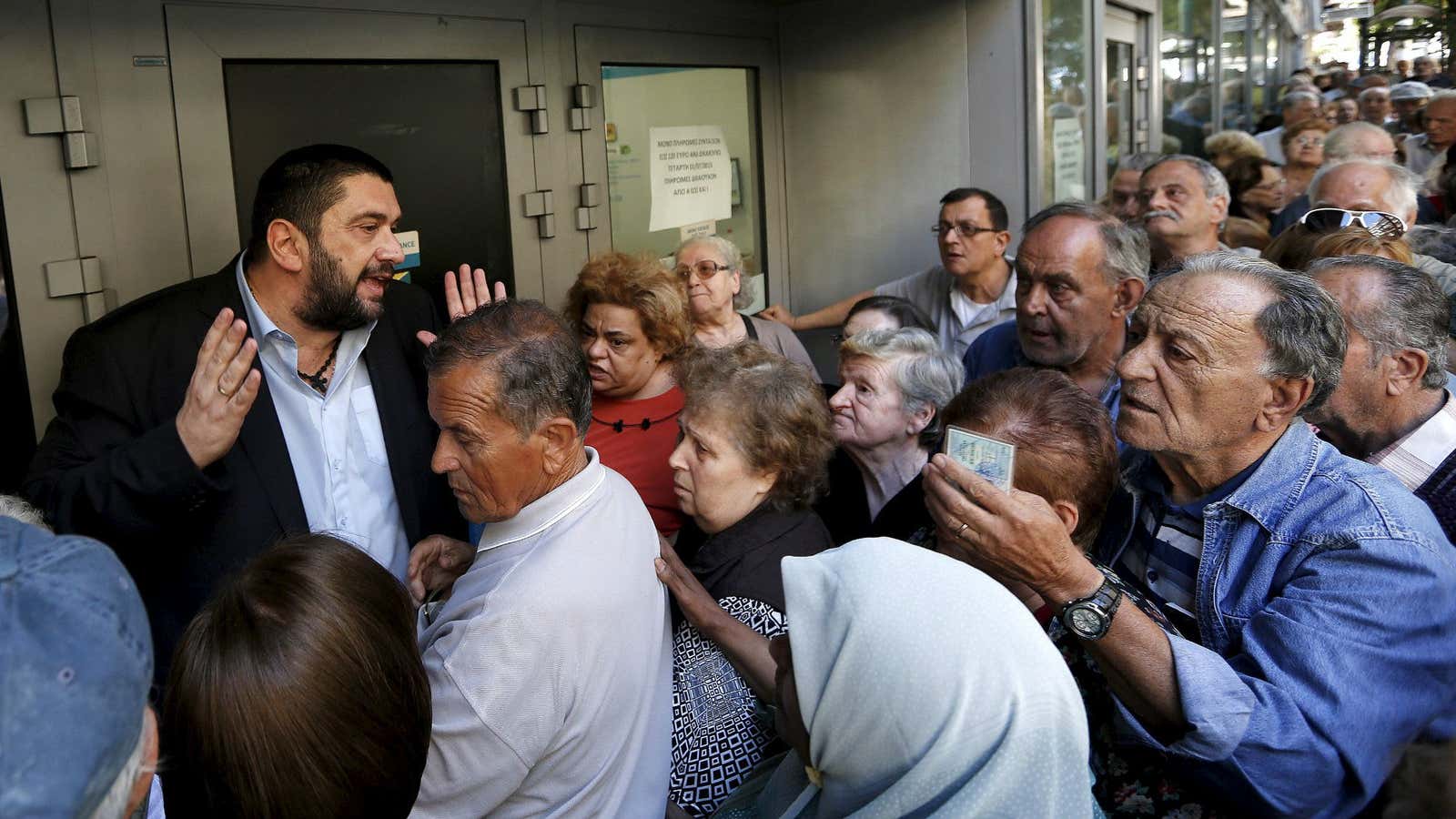Since Greek prime minister Alexis Tsipras brought bailout negotiations to a halt by unexpectedly calling for a referendum, the talks between Athens and its creditors have seen more twists and turns than… a twisty-turny thing. And so, at least for today, the markets like what they hear:
Traders dumped euro-zone stocks late yesterday after word came that Tsipras made a last-ditch plea for a two-year loan worth nearly €30 billion ($33.4 billion) from the euro zone’s rescue fund. Coming mere hours before Greece’s twice-extended bailout program expired and a big repayment to the IMF came due, few took it seriously.
But today, Peter Spiegel of the Financial Times (paywall) got the scoop that Tsipras also wrote separately to Greece’s main creditors and accepted many of their conditions to extend the now-expired bailout. That’s what sparked a market rally.
But—there’s always a but—the Greek leader hasn’t totally backed down. In his letter, he cites “amendments, additions, or clarifications” to the previous deal, softening the tax hikes and pension cuts that creditors demanded. On cue, creditors from other euro-zone countries were quick to play down the chance of a quick deal. “By the way, they’re asking for the extension of a program which has already expired,” an official told Reuters.
Still, the euro zone’s finance ministers have delayed a meeting scheduled for this morning in Brussels to this afternoon to take stock of Athens’ latest overtures. But the referendum on July 5 remains on track, with Tsipras campaigning openly for Greeks to reject the bailout proposal that he is still trying to negotiate with creditors. (And which, remember, has technically expired and no longer exists.)
This all might simply be part of the prime minister’s efforts to strengthen his case against the country’s lenders, forcing them to reject request after request. But, then, if creditors accept these concessions—a big if—will the Greek government change tack and campaign for a “yes” vote in the referendum? Would it call off the vote completely? Are creditors keen for a deal if it means that Tsipras remains in power, or would they prefer to wait for a possible “yes” vote in the referendum to (probably) cost him his job? For what it’s worth, a new opinion poll out today puts the “no” camp ahead.
It’s no wonder that stocks are see-sawing on each nugget of new, and often contradictory, information.
